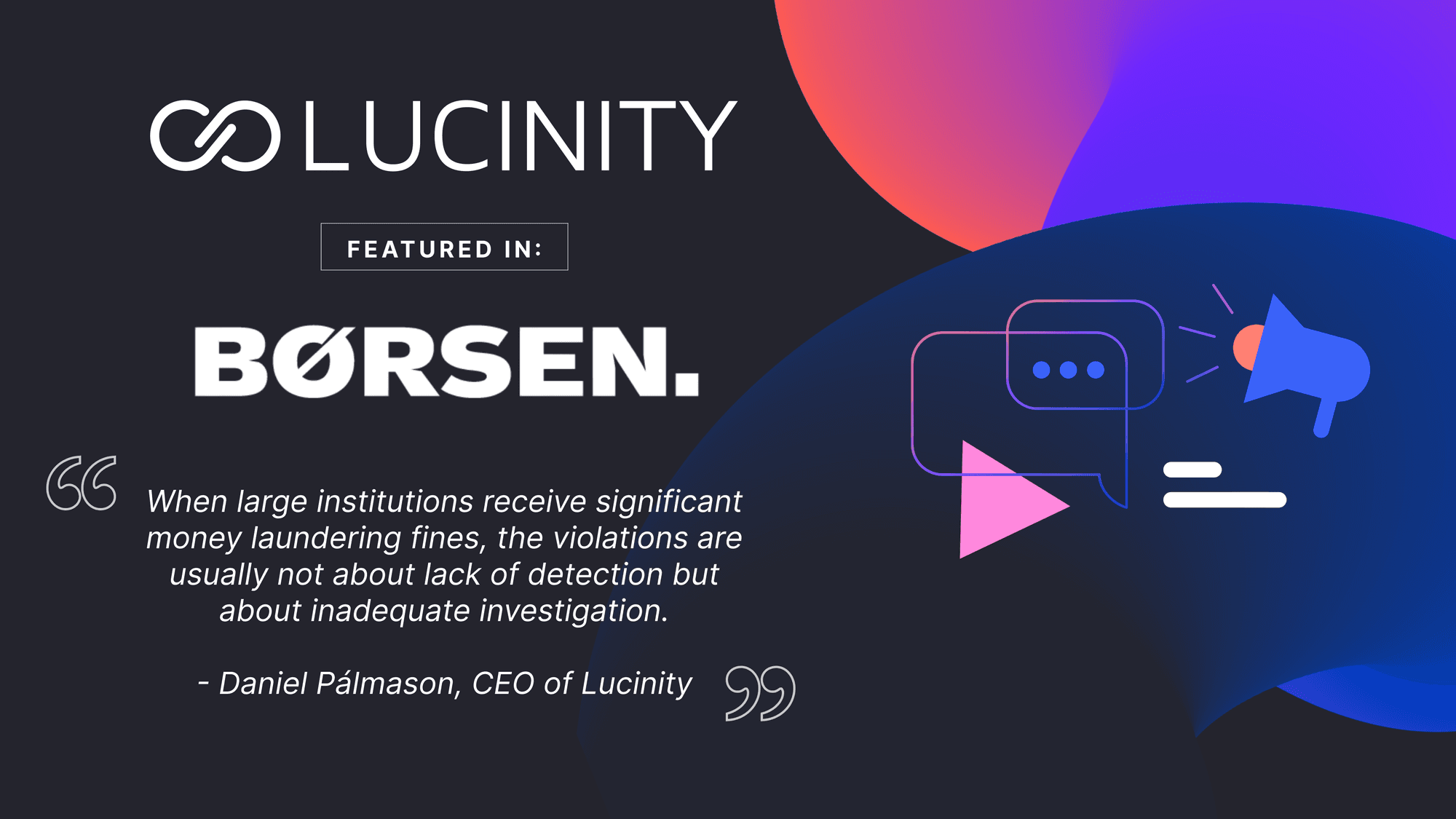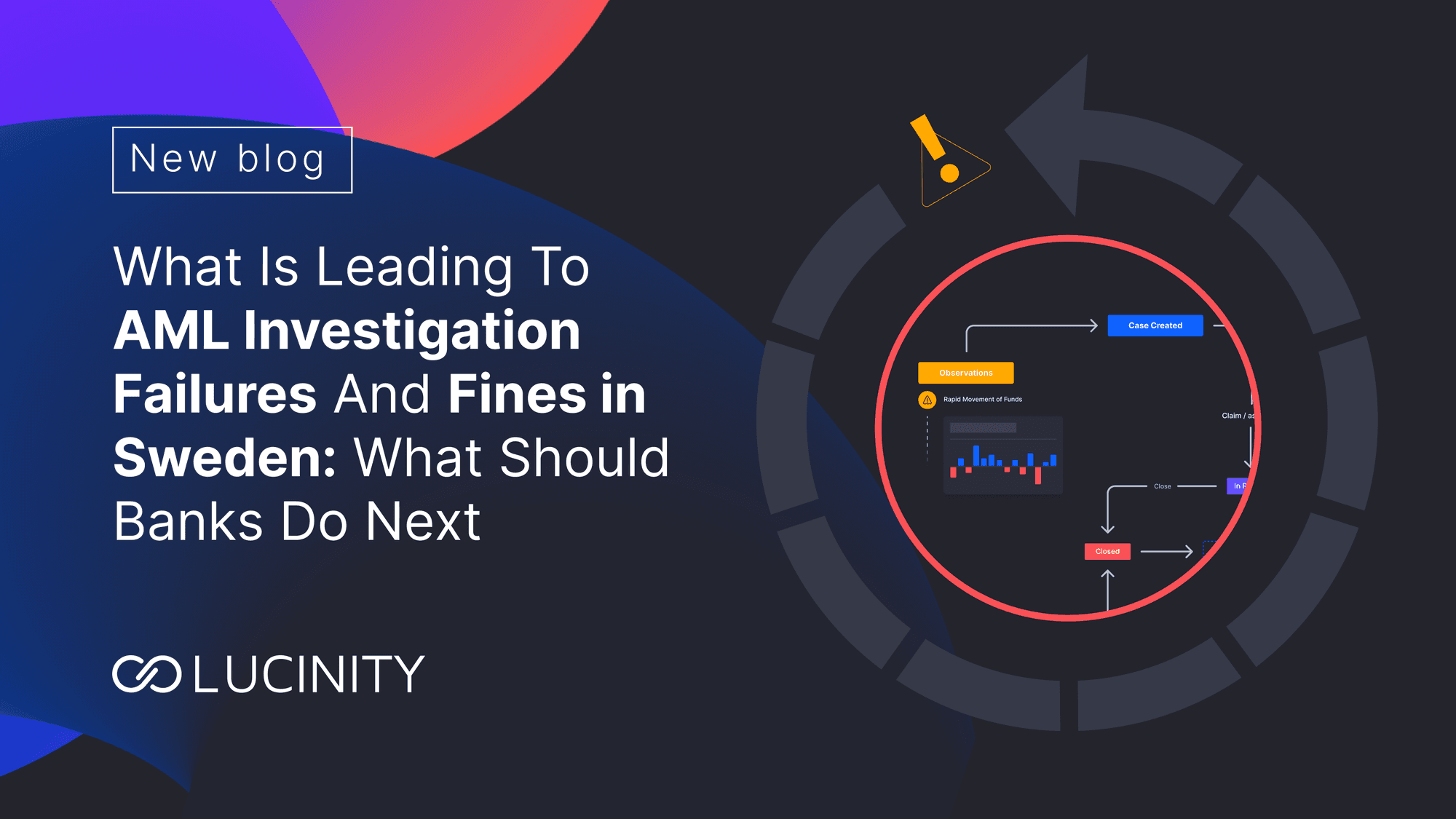Lucinity Summer Product Update: RFIs Redefined, Travel Back in Time, Case Tagging, and more
This summer, we rolled out a suite of enhancements designed to make compliance work faster, smarter, and more seamless. From AI-powered RFIs to scenario testing on historical data, every update was built in response to real customer challenges
This summer, we introduced a series of product enhancements designed to make our customers’ work noticeably easier. Driven by real customer feedback, these updates address long-standing inefficiencies in FinCrime investigations.
At a Glance: What’s New
- Time Travel: Travel back in time to test your scenarios before going live
- AI-Powered RFIs: Stop monitoring your email inbox - let our AI Agent manage the RFI process for you
- Case Tagging: Report, filter, and action cases based on user-defined case tags
- Actor Actions: Take actions on actors from directly within the case

Time Travel: History Has Never Been So Helpful
Traditionally, teams had to deploy monitoring rules live before evaluating their effectiveness—risking false positives and relying heavily on engineering. Lucinity’s Time Travel changes that by letting analysts simulate detection scenarios on historical data instantly, without code.
One customer used it to fine-tune a scenario from generating 13 cases daily down to just 2 cases daily — all while staying fully compliant.
What You Can Do:
- Run historical simulations on detection scenarios
- See which alerts/entities would have been flagged
- Intuitively understand the impact of threshold tweaks or logic changes
- Retroactively raise alerts on past transactions if needed
Common Use Cases:
- Testing new rules before deployment
- Tuning detection thresholds
- Analyzing emerging fraud typologies
- Regulatory readiness or internal audit support
Why It’s a Game-Changer:
- Results in minutes, not weeks
- No developer support required
- Fully auditable and exportable
This brings scenario testing out of the hands of engineers and into the daily toolkit of compliance analysts.

AI-Powered RFIs: No More Email Ping-Pong
RFIs are a regulatory necessity—but in many institutions, they’re still handled manually, outside core systems. The result? Lost emails, repeated outreach, and customer frustration.
Lucinity changes this with a fully embedded RFI solution inside the Case Manager.
Key Capabilities:
- Draft, send, and track RFIs in one place—no more switching between systems
- Templates auto-filled with case-specific data (e.g., transaction and counterparty details)
- AI-generated drafts from Luci, ready for analyst review
- Multi-channel delivery: Email, webhook, or internal routing
- Automated tracking: Timers monitor SLA deadlines, with automated escalation or reactivation options if a response is not received
- End-to-end audit trail of communications and responses
Luci Does the Heavy Lifting:
Luci identifies relevant case data, drafts RFIs, and actions the case once responses come in—whether that’s escalating or reactivating it. Analysts can override or edit at any step.
Benefits:
- No inbox chasing or missed responses
- Eliminates repetitive outreach to customers
- Streamlined communication across teams
- Auditable, consistent, and regulator-ready

Case Tagging: From Chaos to Categorized
Too many cases, not enough structure. That’s the challenge compliance teams face daily when trying to group, analyze, and act on patterns across investigations.
With Lucinity’s new Case Tagging, you can now bring order to chaos.
Core Capabilities:
- Custom tags that can be applied to one or many cases
- Filterable and visible in Case View and Workboards
- Bulk tagging support for efficient handling
- Admin-managed tag taxonomy: Colors, metadata, permissions
- Non-destructive and auditable: No deletion, full context preserved
Examples:
- Workflow: “To Review,” “Needs QA,” “Escalate to Legal”
- Risk Type: “Romance Scam,” “Money Mule,” “Repeat Offender”
- Trigger Points: Auto-initiate SAR filing or AI Automations on tag application
API Integration:
Tags are accessible via API, allowing integration with external tools and systems (e.g., case classification engines, dashboards, or orchestration layers).

Actor Actions: Turn Insight into Action
Once an investigation surfaces suspicious behavior, taking quick, decisive action is essential. Lucinity’s Actor Actions feature lets teams act on entities—like customers—directly within the case, without switching tools or waiting on other teams.
With Actor Actions, analysts can:
- Offboard customers, restrict activity, or clear them —all within the Case Management system
- Configure actions, labels, and dropdowns to match internal policies and terminology
- Track all actions in the case audit trail for full traceability
- Trigger real-time webhooks or use GET APIs for seamless integration into existing systems
Whether it’s placing temporary restrictions or fully offboarding a customer, Actor Actions empowers compliance professionals to move from investigation to resolution—quickly, confidently, and transparently.
In Summary: Built to Accelerate Compliance
With the Summer 2025 release, Lucinity empowers compliance teams to:
- Automate RFIs end-to-end with AI assistance and in-platform tracking
- Test rules proactively using real transaction history—before going live
- Structure and streamline case management with custom tagging
- Act directly on risky actors, right from the case view
All updates are focused on reducing manual effort, improving auditability, and helping your team stay ahead of risk—without sacrificing control.
Let’s Talk
We’d love to help you become more efficient in compliance. Book a demo with our team to learn to learn more!





